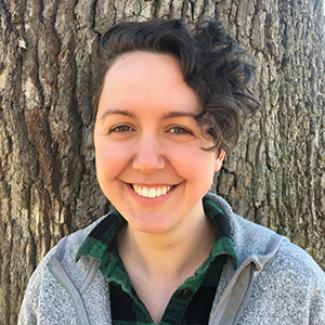Join Xerces pollinator conservation biologist Emily May to learn more about the pollinators that come out to work as others turn in for the evening. Moths, flies, beetles, and other dusk and night-time pollinators can play important roles in pollinating wild and managed plants. Emily will talk about the ecology, diversity, and importance of these hidden pollinators, and how we can best support them in our gardens and communities.
This webinar will be recorded and available on our YouTube channel. Closed Captioning will be available during this webinar.
Learn more and register today!

Emily May - Pollinator Conservation Specialist, Agricultural Lead - Xerces Society
Emily May is a Pollinator Conservation Specialist with the Xerces Society's Pesticide Program. She received a master's of science in entomology from Michigan State University, and has studied pollinator habitat restoration, bee nesting habits, and the effects of pest management practices on wild bee communities. Her work with Xerces since 2015 has focused on supporting crop pollinators through habitat creation and protecting bees and other beneficial insects from pesticides.
